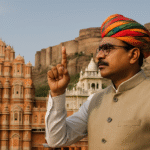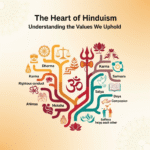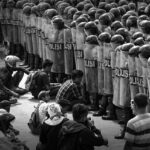Exploring How Uttar Pradesh’s Youth Are Shaping the Future of Philosophy
KEY METRICS:
- Youth Demographics: Approximately 22% of Uttar Pradesh’s population is under the age of 30.
- Education & Engagement: The state is home to over 70 universities, encouraging intellectual growth.
- Social Media Influence: Youth-led movements in Uttar Pradesh are increasingly using platforms like Instagram and Twitter to shape philosophical debates.
- Political Engagement: Youth involvement in political discourse is growing, with a significant voter turnout in recent elections.
Introduction: A New Era of Philosophical Thought
Uttar Pradesh (UP), with its rich history and cultural diversity, is undergoing a transformation in how philosophical ideas are expressed. Youth, armed with modern education and digital platforms, are leading the way in redefining philosophical thought in the state.
The Role of Education in Shaping Philosophy
Uttar Pradesh is home to some of India’s most prestigious institutions, including Banaras Hindu University (BHU)and Aligarh Muslim University (AMU). These universities have long been centers of philosophical discourse. Today, students are not only engaging with traditional philosophical teachings but are also interpreting them through the lens of modern-day issues like social justice, equality, and democracy.
Young intellectuals in UP are questioning long-established norms and integrating global philosophical movements into the local context. Issues such as caste inequality, gender justice, and human rights are becoming central themes in the philosophical dialogue, as youth look to modernize traditional thought.
Social Media as a Platform for Philosophical Debate
Social media has become a powerful tool for philosophical engagement in Uttar Pradesh. Young people are using platforms like Twitter, Instagram, and YouTube to share ideas, debate social issues, and challenge established systems. These platforms allow for the democratization of philosophical thought, making it more accessible and inclusive.
Youth-led movements addressing issues such as gender equality, environmentalism, and secularism are gaining momentum through these channels. By engaging with diverse audiences, these movements are not only raising awareness but are also redefining the philosophical discourse on modern values and social justice.
Political Engagement: Philosophical Ideology in Governance
Political engagement is another avenue where youth in Uttar Pradesh are shaping philosophical thought. The younger generation is increasingly active in political debates, advocating for policies that reflect progressive values. Issues like corruption, education reform, and sustainable development are at the forefront of youth-driven political ideologies.
Many young voters and activists are challenging traditional party affiliations, focusing instead on secularism, human rights, and economic justice. This shift in political thought represents a growing philosophical movement that prioritizes ethical governance and inclusive development.
Cultural Movements: Integrating Philosophy with Tradition
In addition to academic and political spheres, Uttar Pradesh’s youth are integrating philosophical thought into cultural movements. The state’s vibrant arts and literature scene is increasingly being used as a platform to explore themes of justice, equality, and identity.
From contemporary poetry to digital art, youth in UP are blending traditional cultural forms with modern philosophical ideas. This cultural shift reflects a broader intellectual movement that values inclusivity and diversity while staying connected to Uttar Pradesh’s rich cultural roots.
Conclusion: Youth as the Custodians of Change
The youth of Uttar Pradesh are defining the philosophical thought of the future. With education, social media, political engagement, and cultural creativity, they are reshaping old ideologies and creating space for new ideas. By blending tradition with modernity, Uttar Pradesh’s young thinkers are contributing to a progressive, inclusive, and dynamic philosophical future for the state.







